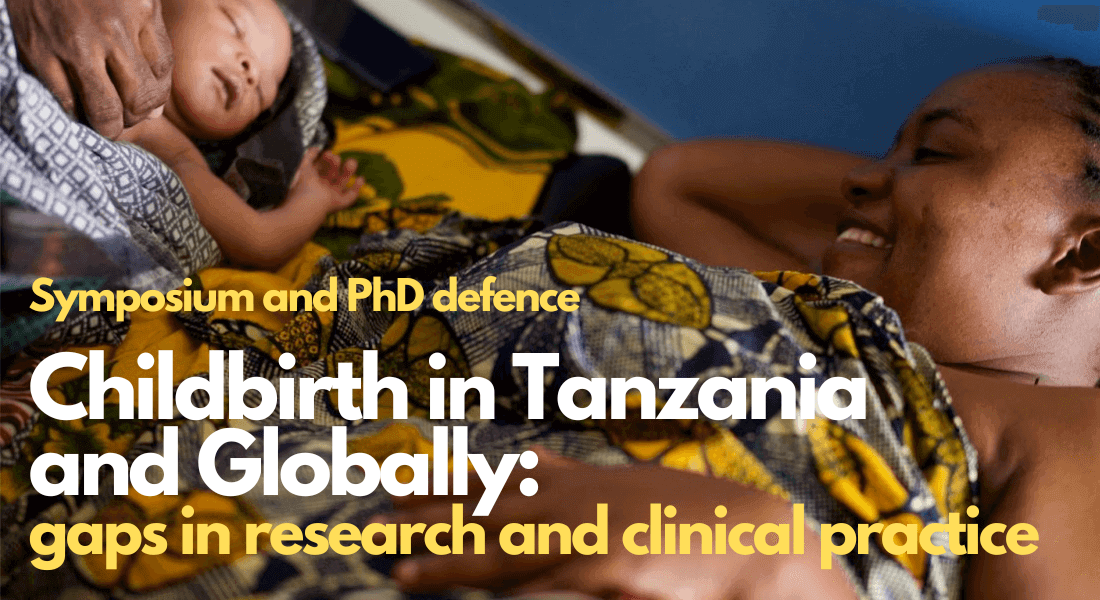Childbirth in Tanzania and Globally: gaps in research and clinical practice

Globally, 300,000 women and 5 million babies die each year around birth. The vast majority of deaths occur in the world’s poorest countries. With proper care, most would survive. However, particularly in sub-Saharan Africa, while facility births are increasing, quality of care often does not follow. This has materialised into an urban disadvantage, where maternal and perinatal mortality is higher in urban than in rural areas. Within the urban setting of Dar es Salaam, PhD student Monica Kujabi has explored how childbirth care is given when the women are many but beds and staff are few. She focuses particularly on oxytocin used to manage prolonged labour and the decision-making process leading to a caesarean section – a rising pandemic.
Building on these findings, the symposium will discuss clinical and research gaps within childbirth care. The need for empathetic respectful labour environments is indispensable. But how is that possible in Dar es Salaam and are challenges similar in other countries? Whose voices are needed, and have we forgotten the women? And how do we close the unjust gaps in research and guidelines which continue to challenge health care in low-resource settings?
Please register for the symposium here (in-person or online attendance)
You can register for for the whole symposium - or choose only Part 1, Part 2, or online participation.
Part I: PhD defense
Labour progression in urban resource-constrained maternity units and beyond: An appeal for change
PhD student: Monica Lauridsen Kujabi
Opponents: Emmanuel Raju (Chair), Andrea Pembe and Helena Litorp
Academic supervisors: Flemming Konradsen, Nanna Maaløe, Kidanto Hussein, Thomas van den Akker, Jane Søresen and Dan Meyrowitsch
Programme:
9.30 – 10.15: Presentation by Monica Kujabi
10.15 – 10.20: Short break
10.20 – 12.20: Scientific discussion by the opponents
12.20 – 13.00: Mini-reception with refreshments and snacks
Part II: Symposium
Whose voices count: creating empathetic labour environments
12.45-13.00: Coffee and tea
13.00-13.05: Opening / Thomas van den Akker
13.05-13.20: Key PhD points / Monica Kujabi
13.20-13.35: Conducive labour environments in Dar es Salaam / Andrea Pembe
13.35-13.50: Prolonged labour in Sweden, Nepal and Tanzania / Helena Litorp
13.50-14.00: Short break
14.00-14.15: Whose knowledge counts? Including women’s voices in research / Morten Skovdahl
14.15-14.30: Injustice of unfit clinical guidelines / Nanna Maaløe
14.30-15.00: Panel discussion and closing / Thomas van den Akker
15.00-16.00: Reception with coffee and cake
